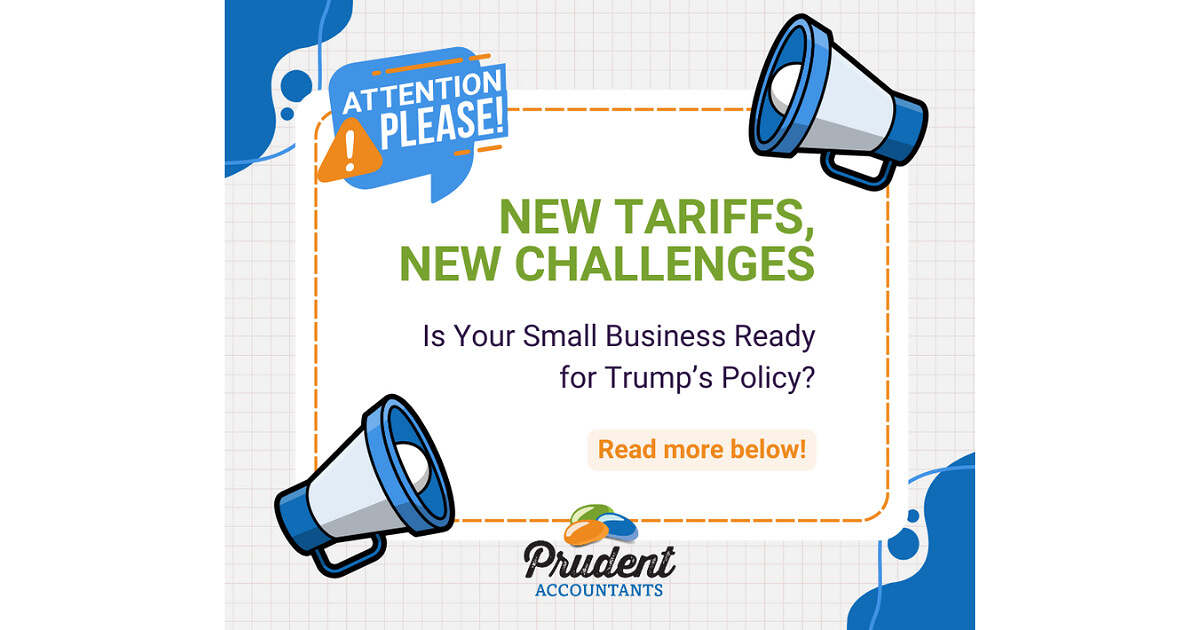How New Tariffs Are Impacting Minnesota Small Businesses—and What You Can Do About It

Running a small business in Minnesota has always come with its fair share of challenges. Between managing day-to-day operations, dealing with supply chain demands, and staying compliant with state regulations, business owners have a lot on their plates. Now, with newly imposed tariffs on imports from Canada, Mexico, and China, there’s even more to consider—especially for industries like restaurants, gas stations, and convenience stores.
In this blog, we’ll break down the key changes, explore how they could affect your business, and provide actionable steps to help you stay ahead of the curve.
What’s Changing with the New Tariffs?
The new tariffs are expected to impact small businesses in several significant ways, particularly through increased costs, compliance risks, and supply chain disruptions. Here’s what you need to know:
1. Higher Costs on Essential Products
The tariffs are directly affecting essential imports such as:
- Meat and produce: Critical for restaurants and grocery stores.
- Alcohol: Impacting bars, restaurants, and retailers.
- Fuel: Affecting gas stations and businesses dependent on transportation.
For businesses that rely heavily on these goods, price increases are almost inevitable. This can squeeze profit margins, forcing tough decisions about pricing and cost management.
2. Stricter Compliance Laws
While raising prices to cover increased costs might seem like a simple solution, Minnesota’s strict price gouging laws make this more complicated. The state prohibits price gouging during declared emergencies, with fines reaching up to $10,000 per sale.
Key compliance rule: Price increases cannot exceed 30% within a 7-day period during emergency situations unless you can prove your costs have risen proportionally.
This means that any sudden price hikes, even if justified by increased costs, must be carefully documented to avoid legal trouble.
3. Potential Supply Chain Disruptions
Tariffs often lead to suppliers adjusting their own operations, which can cause:
- Delays in product deliveries
- Shortages of key items
- Increased costs passed down the supply chain
For businesses operating on tight inventory schedules, these disruptions can create operational headaches, making it critical to have backup plans in place.
How Can Minnesota Small Businesses Prepare?
While these changes may seem overwhelming, there are proactive steps you can take to mitigate risks and protect your business:
1. Review and Adjust Your Pricing Strategy
Before making any price adjustments:
- Analyze your cost increases: Document how tariffs are affecting your expenses.
- Stay within legal limits: Ensure any price increases comply with Minnesota’s price gouging laws, especially during emergencies.
Maintaining detailed records can help justify your pricing decisions if your business is ever audited.
2. Assess Your Supply Chain Vulnerabilities
Identify which products in your inventory are most affected by the tariffs. Then:
- Reach out to suppliers: Discuss potential price changes and delivery delays.
- Diversify your sourcing: Explore alternative suppliers to reduce dependency on tariff-impacted goods.
This approach can help you maintain a steady flow of inventory, even when your usual suppliers face disruptions.
3. Strengthen Your Compliance Documentation
Good record-keeping is your best defense against compliance issues. Keep detailed logs of:
- Cost changes from suppliers
- Communications regarding pricing decisions
- Justifications for any price increases
Having a clear paper trail can protect your business if regulatory questions arise.
4. Communicate Transparently with Customers
Price increases can be frustrating for customers, but transparency goes a long way. When adjusting prices:
- Explain the reasons clearly: Let customers know how tariffs and supply chain issues are affecting your costs.
- Emphasize your commitment to fairness: Reassure them that you’re doing everything possible to minimize the impact.
Open communication helps maintain customer trust, even during challenging times.
Need Help Navigating Tariff Impacts and Compliance Risks?
Dealing with new tariffs, supply chain challenges, and strict compliance regulations can feel overwhelming. But you don’t have to handle it alone.
Our team specializes in helping small businesses:
- Review and optimize pricing strategies
- Identify and mitigate supply chain risks
- Ensure full compliance with Minnesota’s business laws
Schedule a free consultation today to discuss how these changes could affect your business and what strategies you can implement to protect your operations and profitability.
Staying informed and proactive is the key to keeping your business strong, no matter what changes come your way.








